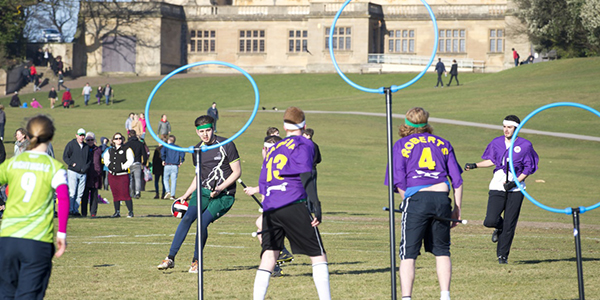
January 8, 2018, by studentcontributor
Transition to Higher Education (Tips from a mature medical student)
What if I told you it was possible to study a classical subject, not be sheepish about your journey into university, study a subject you love and have a decent social life?
Well, it is! I’m 23, in my 1st year of medical school, had a booming career before university and had lived on 3 different continents before deciding higher education (HE) was for me! I want to assure anyone thinking about studying at university that it can be for them, and the transition isn’t as hard as you might think.
I’ll be honest, I was a little anxious about HE because I was worried about fitting in with people that would most certainly be younger than me. I felt it would be a miracle if I could keep up with the work and kept asking myself, “How will I adjust?”. Going from Sixth Form to work (and later travelling) was pretty crazy, so going back, now older, would be a steeper jump, right?
I’m far from the perfect student, but I feel I am hitting the work-life balance right, and I always allow room for that scale to be adjusted as and when my priorities change.
From my experience, there are a few things any potential student can do to prepare for higher education.
1. Decide whether you need a degree
This may seem like such an obvious logic, but I can assure you, for many it really isn’t. Many of my friends and colleagues have left university or are continuing in drudgery in a course they do not enjoy but have invested too much time (and money) to leave behind.
The University of Nottingham is a brilliant place to study–world class research, staff that truly care about you and a support network that’s like family. But before going into any degree, make sure you have an idea of what you might do with your degree, it helps add relevance to your studies and also provides an extra dose of motivation when that assignment is due!
2. Pick a course that aids the transition
After deciding the affirmative and saying, ‘Yes, I will most definitely benefit from doing a degree’, it’s integral you pick the right one.
I chose the University of Nottingham partially for the course structure of Medicine with a Foundation Year (A108). It was perfect. I wanted a competitive edge in applying for my Foundation Programmes so the integrated BMedSci was ideal, I wanted to keep my career options open and graduate with a reputation so choosing a Russell Group institution that will invest a monumental £200 million in global challenges was obvious, and the foundation year was logical because I wanted to streamline into medicine without reapplying or taking extra exams, and the teaching was superb–I don’t feel behind at all! So, what do you need in your degree? Dedicating time, money and effort to a course is a HUGE commitment to undertake at any age, picking the right one is vital, so pick a course that teaches you the way you like, assesses you in the way you enjoy, and supports your personal and professional lives.
3. Don’t forget to relax!
If someone had told me before I started university that I’d be a Course Rep, Mature Student Mentor, blogger, Student Ambassador, and reading medicine, I’d have ushered them to the GP personally. Which medic has time for all of that? It turns out, I obviously do, because university is so much more than simply academia.
Being at the University of Nottingham is about making the most of every opportunity that is unique to a student, and making those opportunities for others. Whether it be skydiving or quidditch; pitching in with an approximately 45,000-strong student body or taking long walks through untouched country pastures. There is literally something for everyone! Nothing helps that transition more to HE than getting involved with everything the University has to offer, meeting new people and making new friends. As you develop those essay writing skills, don’t forget to have time to develop hobbies, as well! It’s a great stress relief and it’s nice to remind yourself you’re not alone from home.

Quidditch
Summary
Overall, my journey from pre-university to where I am now is a little different to most. However, the principles are applicable to anyone looking at higher education as an option. Start by ensuring you really do want to undertake a degree, it’s fantastic to be here, but be sure to pick a course that suits your needs. Some of those needs may include how you’re tested, how you’re taught, and what facilities you will have access to. And finally, don’t forget to destress after a hard week. Join clubs or societies, switch it up a bit, but most importantly enjoy being a student, after all, they do say you’re only young once!
Contributor: Daniel P McDonald-Smith, first-year medical student
No comments yet, fill out a comment to be the first

Leave a Reply